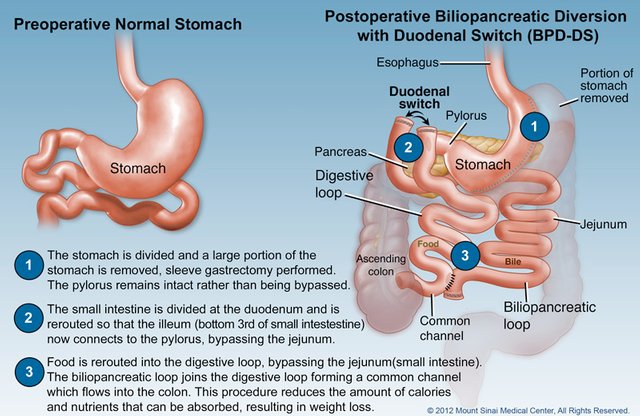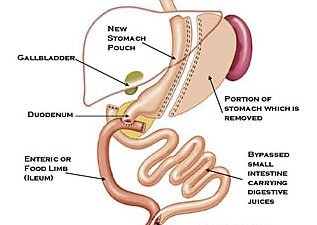Ten Days Ago I had Weight Loss Surgery
Even though it is outside my normal writing (and, in fact, reading) interests, I thought I would write a brief article about a procedure I recently underwent. Ten days ago, I had a form of weight loss surgery. Some people consider such procedures “cheating” or taking the easy way out. For one thing, it is not easy. As with every form of major surgery there are risks – blood clots, anesthesia, etc… - in fact, because you are already obese, the risks are higher because obesity leads to additional surgical risks. I am not particularly interested in changing naysayer’s minds; however, I did think that a firsthand account of the period before, during, and immediately after surgery was interesting enough to warrant a brief article here.
I made the decision to do this about eight months ago after a close relative died. That individual’s suffering, death, and thinking about the younger children that were left behind caused me to spend some time reflecting on my own life. I had been fat since I was in elementary school, and I only lost weight for a few year period in my late teens/early twenties and then a medical event forced me on medications that caused me to regain the weight I had lost through diligent dieting and exercise. After a while, I resigned myself to my weight and let it be. After my relative’s death, I started thinking about my own health and what would happen to my children if I were to die prematurely. That along with the fact that I was starting to again feel worn out with being fat and noticing health issues related to it caused me to make this decision.
After researching the different procedures, I decided to go for the jugular and try to have the most extreme form of surgery initially (to avoid failure): the duodenal switch. Since I am not a clinically inclined person at all, the best way I can explain how the surgery works is that the procedure involves shrinking my stomach significantly and changing my intestinal routing. This causes me to both malabsorb fat and other items and severely limits the quantity of food I can consume. Much has been writt en on the procedure, so I won’t waste space trying to rewrite what has already been described more articulately online by more competent individuals. Once I found a location and confirmed that I was a good candidate for the surgery, I scheduled it a few months out. Because I am that lucky, I actually had to push it out a month again because I had gotten an eye infection two weeks before I was originally supposed to be operated on. Prior to the procedure I had to fast on clear liquids and a minimal amount of yogurt for five days and then have the normal preoperative labs, EKG, physical, etc… All of that was as interesting as it sounds.
en on the procedure, so I won’t waste space trying to rewrite what has already been described more articulately online by more competent individuals. Once I found a location and confirmed that I was a good candidate for the surgery, I scheduled it a few months out. Because I am that lucky, I actually had to push it out a month again because I had gotten an eye infection two weeks before I was originally supposed to be operated on. Prior to the procedure I had to fast on clear liquids and a minimal amount of yogurt for five days and then have the normal preoperative labs, EKG, physical, etc… All of that was as interesting as it sounds.


The surgery itself was almost four hours and involved five incisions. Four were stitched during the procedure and the other had a drain tube inserted in it for forty-eight hours. Partly due to the anesthesia and pain meds, the pain wasn’t too bad after the surgery; indeed, to prevent a blood clot, I was walking around the hospital later in the day after the surgery. I was also put on a clear liquid diet for ten days. I will then follow a regular liquid diet for another ten days, followed by soft food diet for ten more days, and then, finally, regular food consumption can slowly begin. There are breathing exercises I also have to do; furthermore, I have to clean the incision where the drain tube was, and I have to medicine to prevent acid reflux. In a few weeks, I will start a vitamin regimen that I will need to continue for the rest of my life.
All of that aside, this was one of the best things I have ever done; in fact, it may be the best because I am now giving myself an extra chance to be healthy for my children and myself. It won’t be easy, I have to watch my protein intake (I have to consume 80-120 grams daily) and vitamin/mineral levels for the rest of my life. I will also need to exercise regularly soon too. This was a kickstart, not a shortcut. I get an extra chance to work towards a healthier lifestyle.
If you are obese and reading this, this procedure or weight loss surgery in general may not be for you (if you are interested, I do encourage you to talk to your primary care physician about it). It isn’t easy, but neither is being obese, and if this can push you towards a healthier lifestyle, it may be worth it. If you were ever obese and handled it through diet and exercise alone, I tip my hat you – good work and you should be proud of it. Others may not need or be able to go that route. If they cannot file on just diet/exercise, there are other options to help overcome the health impacts from obesity and begin losing excess weight. Whatever you do, don’t be misled by “fit but fat” or complacency with your health. We have a major health problem that can cause early death and miserable comorbidities such as diabetes, sleep apnea, and high blood pressure. There are options to combat it. If you have a family or look forward to having one, you have a responsibility to try to be around to care for and enjoy them.
I am writing this article to provide a forum for anyone to ask questions (that hopefully I can answer) and to remind everyone out there that there is no reason to be complacent or hopeless with obesity; find the option or options that work for you, find a doctor that will work with, and get healthy. As I said, I will try to answer any questions below.
Image courtesy of: 